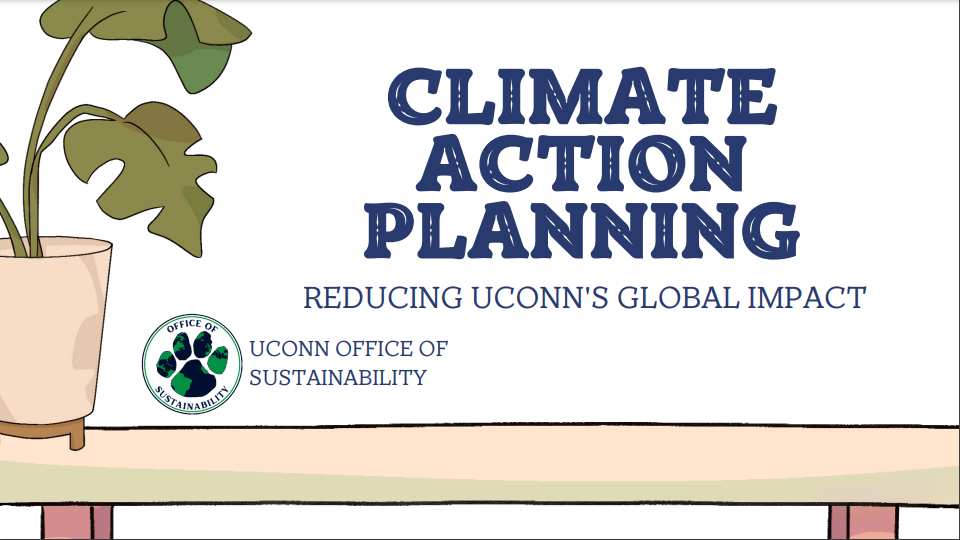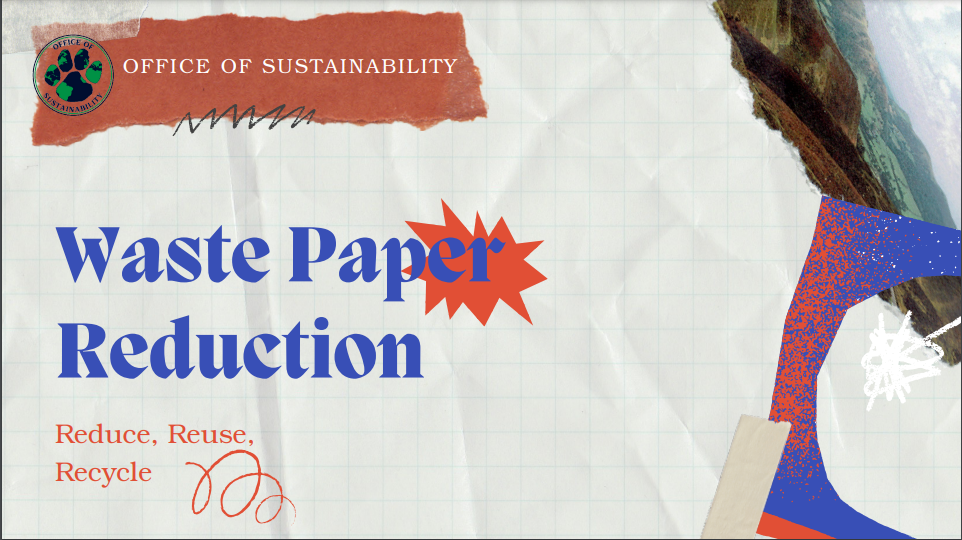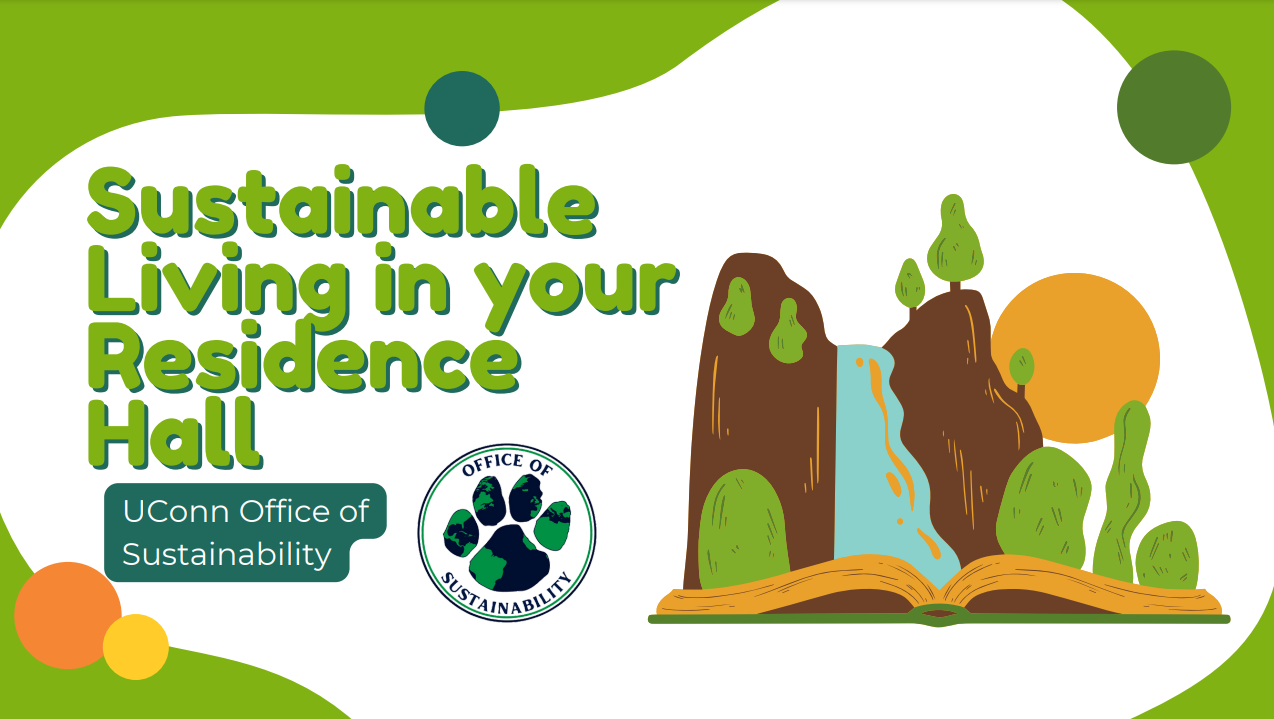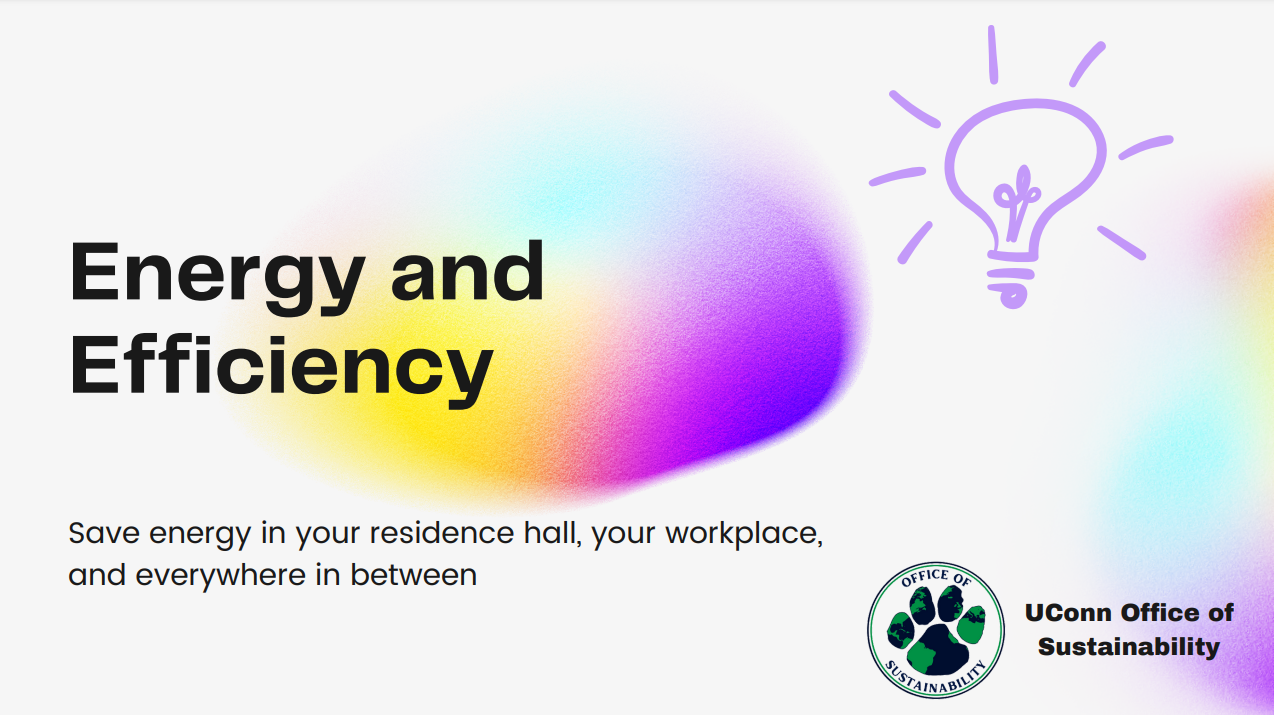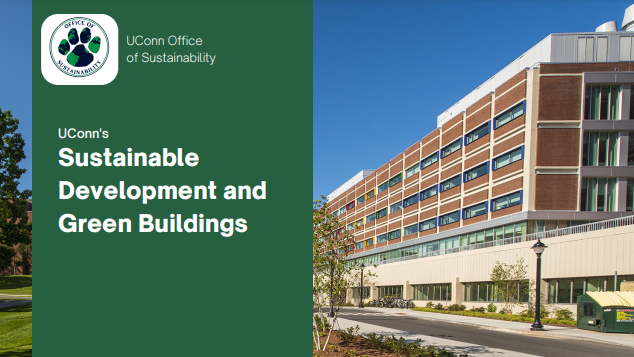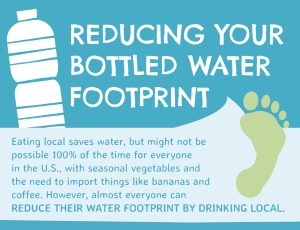Frequently Asked Questions for RAs
General
How does recycling work in the Residence Halls?
There are recycling & trash stations located in every residence hall on campus. Depending upon the layout of the individual building, these may be located on every floor or just the ground floor.
UConn practices mixed recycling, which means that all recyclables (except for electronics, see below) can be placed in any recycling bin.
Small electronic equipment such as old cell phones and chargers, rechargeable batteries, and empty ink cartridges can be recycled by visiting any Complex Office and placing these in designated collection boxes.
Are there any outdoor recycling bins?
We have several outdoor recycling bins for bottles & cans located around campus. You can find one outside the Library (newsstand entrance), the Student Union, and the fieldhouse entrance to the SRF.
I saw custodial staff putting trash and recycling together. What's with that?
Custodial staff have been trained not to fish recyclables out of the trash and vice versa. This is to protect them from being injured by any sharp or other hazardous items that may be lurking in the bins. Therefore, if there is too much trash mixed in with the recyclables, it will all be tossed out as garbage. Even more reason to make sure that you use the bins properly!
If you are consistently seeing this happen, however, and feel that it's not due to excessive co-mingling of trash and recyclables, please give the Office of Environmental Policy a call at 486-5773.
What is "e-waste" and where can I recycle it?
E-waste is waste produced by old or broken electronic devices and their associated materials. E-waste items should not be disposed of in the trash due to their high concentrations of toxic chemicals and heavy metals. There are 3 large collection bins for E-waste located in the Library, Co-op and Student Union. Each Residence Area's Complex Office also has a collection bin for E-waste.
Recycling is good but what can I do to reduce the amount of waste I produce?
Reducing the amount of waste you produce is easier than you think. Some easy ways to reduce waste at UConn include using a reusable mug or water bottle instead of purchasing beverages in plastic or paper containers that will be disposed of after use. Try to use items with less packaging when purchasing something. You can reduce food waste by taking smaller portions of food and filling up your plate again later if you really want more. Reducing is all about making conscious decisions about your consumption. You can do it with a little hard work and practice!
Water Conservation
Where does UConn get its water?
UConn draws most of its water from 2 sources, the Fenton River and the Willimantic River. Under ideal conditions, UConn is allowed to draw approximately 844,300 gallons of water a day from its well fields near the Fenton River,and approximately 2.3 million gallons from the Willimantic River well fields.
How can I conserve water on campus?
You can conserve water in a number of ways.
- Take less or shorter showers!
- Cutting back on shower time by only a minute can save between 5 and 10 gallons of water.
- Do not leave the water running while brushing your teeth or washing your hands and face.
- Report all leaks, as soon as possible!
- Avoid unnecessary flushing of the toilet- do not use them as a trash can.
- Do only full loads of laundry.
- Pool laundry with friends to make full loads.
- If you need to do a partial load, adjust the water level on the washing machine accordingly.
- Don't overheat or overcool your room.
- Use the least amount of dish detergent possible to minimize the amount of rinse water needed.
- Store drinking water in the refrigerator rather than letting the tap run for a cool glass of water.
- Run automatic dishwashers only when fully loaded- they use the same amount of water no matter how big the load is.
- Use the refrigerator instead of running water to thaw frozen foods- it's on already!
What do I do if I notice a leak?
A work order should be placed to get leaks repaired. Go here.
How much water does UConn use?
UConn uses approximately 1.3 million gallons of water per day. In times of peak demand (usually when cooling needs are at their highest), this can reach 2 million gallons per day.
Energy
How is electricity generated at UConn?
A 25 MW natural-gas fired cogeneration facility supplies approximately 70% of the campus electricity, heating, and cooling needs. Natural gas is one of the cleanest burning fossil fuels and the cogeneration facility runs at a much higher efficiency than drawing energy from the grid.
How can I conserve energy on campus?
There are many ways that you can easily save energy on campus!
- Try to use natural light whenever possible. If you have to use artificial lighting, try task lighting (i.e. using just a desk lamp when you're working at your desk) instead of lighting the entire room if you don't need to.
- When leaving a room, always turn the lights off.
- When appliances are not in use such as a TV, cell phone charger, etc. turn them off AND unplug them. Even when turned off these items continue to use energy simply by being plugged in.
- Set your thermostat a few degrees lower in the winter and higher in the summer and the energy savings will be high.
- Try to power down your computer as much as possible, but if it must stay on, at least shut the monitor off when not in use. Also, set your computer modes to "hibernate" or "sleep" instead of using a screen saver. Screen savers do not "save" anything but rather use a lot of energy to keep them going.
Is there anywhere nearby that I can purchase Energy Star products?
The UConn Co-op carries a wide variety of Energy Star products!
What is UConn doing about its carbon footprint?
UConn is taking many steps to lessen its carbon footprint!
The Eco-Madness competition is a water and energy conservation competition held each year on campus. Previous competitions have resulted in tons of carbon dioxide avoided from being released into the atmosphere because of conservation measures. UConn is also a signatory of the American College and University Presidents Climate Commitment, which means that the University must attain carbon neutrality by 2050. Since being signed in 2008, UConn has already completed a thorough inventory of its greenhouse gas emissions and is looking into projects that will lessen its carbon footprint.
Lifestyle
What are my options for sustainable dining on campus?
Whitney Dining Hall is an excellent place to enjoy sustainable foods while at UConn. Whitney Dining Hall is home to the Local Routes program which supports local farmers by bringing their produce to UConn! At Whitney, you can enjoy vegetables grown at by UConn's own EcoGarden Club or drink milk produced on the Storrs campus. Choosing vegetarian or vegan meal selections will also make your diet more sustainable and these options are available at all dining halls, at every meal of the day.
Does UConn use green cleaners? What sorts of products should I be using in my room/apartment?
Executive Order No. 14 mandates the use of green cleaning products in all Connecticut state buildings, including the University of Connecticut. The use of a more traditional cleaner may be allowed if a suitable alternative can't be found but an exemption would have to be applied for.
Green Seal is an independent, third-party organization which certifies green cleaning products. If you see their logo on a product, it's a safe buy.
